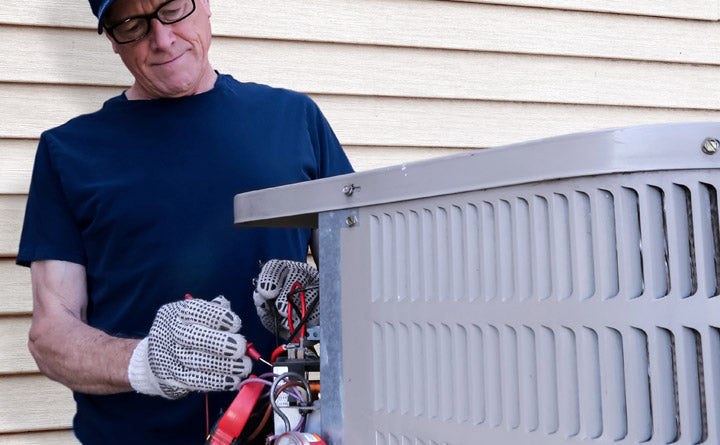If the air conditioner in your home was manufactured before January 1, 2010, it likely uses Freon® known as hydrochlorofluorocarbon (HCFC)-22. This is often shortened to simply R-22. The EPA has slowly reduced the production of this coolant, and many air conditioners made after the above date make use of another refrigerant known as R-410A (Puron®).
While you can no longer buy a new cooling system that uses this type of Freon®, you may have an existing air conditioner that does.
Here are some frequently asked questions and answers about R-22 refrigerant.
Why was this type of Freon® phased out?
R-22 contains hydrochlorofluorocarbons (HCFCs), which can deplete Earth’s protective ozone layer.
Do I need to get rid of R-22 coolant from my AC?
You can still run an AC that has this R-22 Freon® inside it. However, production of this refrigerant is scheduled to be phased out by 2020. Between now and then, the cost of this coolant will become more expensive as its supply becomes more limited.
If I have a cooling system that runs on this Freon®, how could I reduce its impact on the environment?
Have your air conditioner serviced regularly by a professional. If there is a leak in the unit, make sure that it is repaired before any Freon® is added to the system. Oncourse Home Solutions offers cooling maintenance and repair plans.
Should I replace my old system if it runs on R-22 refrigerant?
New air conditioners use R-410A. And in the years to come, this type of coolant is expected to be less expensive to service a system running on this refrigerant than one using R-22. Also, a newer cooling system may be more efficient than what you currently have. Weigh the costs and benefits of replacing your air conditioner now versus in the future when the production of R-22 has stopped.
How do I throw out an air conditioner that ran on R-22?
If you have purchased a replacement air conditioner, the technician installing the new unit may take the old system for you and properly dispose of it. There are also government organizations that will pick the old AC up. Be sure to not cut, break or tamper with the existing unit, as this increases the risk of a refrigerant leak.
Keep in mind that Oncourse Home Solutions provides Cooling Repair and Cooling Maintenance plans to help keep your AC running efficiently and safely.


